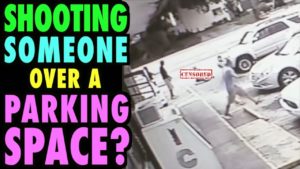 Markeis McGlockton has been buried. His children and family are left to deal with the pain and trauma of having a loved one killed and in plain view of Markeis’ little kids no less. Finally, the case is going to the State Attorney’s office for a decision as to whether the shooter should be charged. Sheriff Bob Gualtieri inserted himself into this tragedy from the beginning and made a total mess of it. As I wrote on social media a few days ago, “Stand your ground law is a legal defense and really none of your (Gualtieri’s) business. In order for it to apply you must arrest a defendant and let the lawyer present the law as a defense before a trial begins. Then and only then a Judge will make a determination if it applies. If it does then the charges are dismissed, if not the defendant goes to trial. You don’t get to make that decision a judge does. Bernie McCabe, our State Attorney, should bring charges even if you don’t arrest the defendant for murder. This is unacceptable. We are the laughing stock of the country and this is not funny.”
Markeis McGlockton has been buried. His children and family are left to deal with the pain and trauma of having a loved one killed and in plain view of Markeis’ little kids no less. Finally, the case is going to the State Attorney’s office for a decision as to whether the shooter should be charged. Sheriff Bob Gualtieri inserted himself into this tragedy from the beginning and made a total mess of it. As I wrote on social media a few days ago, “Stand your ground law is a legal defense and really none of your (Gualtieri’s) business. In order for it to apply you must arrest a defendant and let the lawyer present the law as a defense before a trial begins. Then and only then a Judge will make a determination if it applies. If it does then the charges are dismissed, if not the defendant goes to trial. You don’t get to make that decision a judge does. Bernie McCabe, our State Attorney, should bring charges even if you don’t arrest the defendant for murder. This is unacceptable. We are the laughing stock of the country and this is not funny.”
Gualtieri is a lawyer, albeit one who never practiced criminal law, but still he should know better than this. In the meantime, Florida receives unwanted media attention for being a legal backwater. Gualtieri’s decision to let Mr. Drejka go free has reopened the debate in Florida over Stand Your Ground, a 2005 law that first rose to national attention after the 2012 fatal shooting of Trayvon Martin, a 17-year-old African-American teenager whose killer the police initially declined to arrest, citing the law.
Even the state’s NRA lobby appears to be questioning the decision. Marion Hammer, the N.R.A.’s longtime Tallahassee lobbyist and a key figure in promoting Florida’s emergence as a laboratory for gun-friendly legislation, said in an email to Politico that the law allows sheriffs to make arrests if they think they can prove a crime has been committed.
“Nothing in either the 2005 law or the 2017 law prohibits a sheriff from making an arrest in a case where a person claims self-defense if there is probable cause that the use of force was unlawful,” Ms. Hammer said, according to Politico. “Nothing in the law says a person can sue the sheriff for making an arrest when there is probable cause.”
